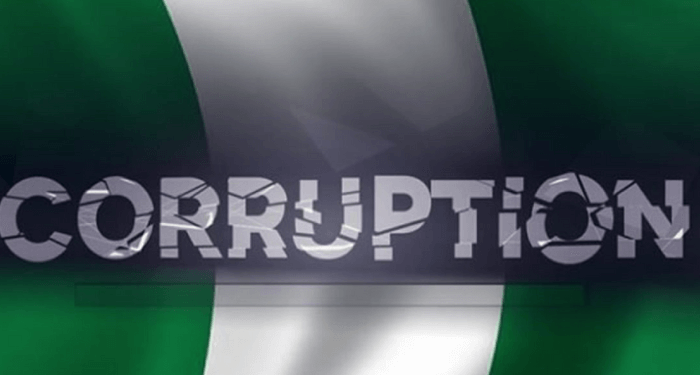IMF/WTO: Nigeria’s Economy Suffers From Corruption, Disregard For Rule Of Law
The International Monetary Fund (IMF) and the World Trade Organisation (WTO) both have a remit to monitor and review the economic developments and policies of their members. The aim, for the IMF, is to ensure that countries manage their economies and finances well to prevent a domestic financial instability and, through a contagion, a global one. For the WTO, the aim is to make sure none of its members pursues autarkic, beggar-thy-neighbour trade policies that could harm their economies and those of other members, upending the global economy. After all, such autarkic policies, notably the protectionist US Smoot-Hawley Tariff Act of 1930, caused the Great Depression and helped trigger the Second World War.
Thus, under Article IV of its Articles of Agreement, the IMF conducts what is known as Article IV Consultations with each of its members every year, studying their economic policies and practices, highlighting the strengths and weaknesses and providing policy recommendations. Similarly, under Article IV (4) of the WTO Agreement, the WTO undertakes a Trade Policy Review, TPR, of each member-state to ensure their trade policies are consistent with WTO rules. However, unlike with the IMF, the frequency of the WTO’s TPRs is determined by each member’s share of world trade. For that reason, given Nigeria’s minuscule share of world trade, at about 0.49 percent, its TPR takes place every six or seven years, and, since the WTO was established in 1994, Nigeria has had six TPRs to date.
Now, believe me, I have read virtually all the reports of the IMF Article IV Consultations on Nigeria over the past ten years, and have read all the reports of WTO’s six TPRs on Nigeria, the latest published in November 2024. Why the fixation, you may wonder. Well, it’s borne out of my professional interests as a trade lawyer and a scholar in international economic and trade law and policy, the focus of my PhD and a subject I taught at the London School of Economics, not to mention once being a researcher at the WTO in Geneva.
Over the years, Nigeria’s successive Article IV Consultation and TPR reports made a damning reading because they constantly highlighted deep structural weaknesses in Nigeria’s economic and trade policies and lamented the country’s stubborn refusal to implement the policies recommendations of the IMF and the WTO, thereby failing to tackle the defects.
However, the 2024 Article IV Consultation and TPR reports were a bit different. Both the IMF and the WTO recognised and commended the economic reforms introduced by the Bola Tinubu administration, notably: the removal of the fuel subsidies, the floating of the naira and the scrapping of the CBN’s list of 43 import items for which foreign exchange could not be purchased in the official forex market. In particular, the IMF regarded those reforms as “crucial to boost investor confidence, unlock Nigeria’s growth potential and diversify the economy.
Nevertheless, the IMF and the WTO acknowledged that Tinubu’s reforms had produced adverse consequences, especially with skyrocketing inflation, massive depreciations of the naira and acute food insecurity and hunger, leading to social tensions. They implied that the failure to properly sequence the reforms and to provide effective mitigation, such as genuine safety nets, coupled with “persistent loose financial conditions”, were to blame for the adverse effects.
“Truth is, whatever reforms Tinubu introduces, unless he frontally tackles corruption, Nigeria will continue to suffer untold reputational damage internationally and foreign investors won’t beat a path to the door of a country known for entrenched corruption.”
But what really struck me in the reports is the attention that both the IMF and the WTO gave to how endemic corruption and the absence of the rule of law pose existential challenges for Nigeria’s economy. The WTO states: “Corruption, coupled with weak enforcement of the rule of law, remains significant barriers to private sector-led growth in Nigeria.” On its part, the IMF devotes a whole section to the issue, under an annex titled “Towards stronger anti-corruption and rule of law in Nigeria.” The IMF points to studies showing that “reducing corruption in Nigeria to the level observed in benchmark countries (for example, Malaysia, Mongolia, Morocco or South Africa) could boost growth by 0.5 to 1.5 percentage points annually”, and that “lowering Nigeria’s level of corruption to that of South Africa could increase the amount of infrastructure obtained from each publicly invested dollar by 12 percent.”
Of course, everyone knows that Nigeria is a fantastically corrupt country, where, as the IMF puts it, “corruption is entrenched at all levels of government activity.” But few in this country link corruption to Nigeria’s economic performance. I mean, if reducing corruption to the level in South Africa could grow Nigeria’s economy by 1.5 percent and could increase the amount of infrastructure obtained from each dollar the government spends by 12 percent, why are Nigerians lethargic about the level of corruption in their country? Why are they behaving as if corruption is a victimless crime that has nothing to do with them? Yet, tackling Nigeria’s endemic corruption would yield higher per capita GDP growth, higher revenues and improved efficiency in public investment and public services, which would benefit everyone!







